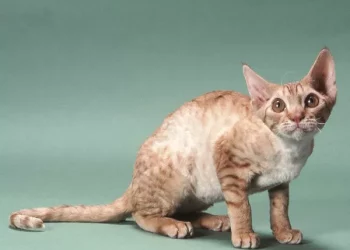As a proud owner of a British Shorthair, you want to ensure that your feline friend receives a well-balanced and nutritious diet. A proper feeding routine is essential for maintaining your cat‘s health, energy levels, and overall well-being. Determining the right amount of food to provide can be challenging, considering factors such as age, weight, activity level, and individual needs. In this article, we will explore comprehensive feeding guidelines to help you make informed decisions and ensure your British Shorthair receives the optimal nutrition it deserves.
Understanding Your British Shorthair’s Nutritional Needs
Before diving into feeding recommendations, it’s crucial to understand the nutritional needs of your British Shorthair. As a medium to large-sized breed, these cats have a sturdy build and can be prone to weight gain if not fed appropriately. A balanced diet for British Shorthairs should consist of high-quality protein, moderate fat content, and controlled carbohydrates.
Protein: British Shorthairs require a diet rich in animal-based protein to support their muscular structure. Look for cat food that lists meat as the primary ingredient, such as chicken, turkey, or fish.
Fat: While fat is a necessary part of a cat’s diet, it should be provided in moderate amounts. Opt for cat food that contains a healthy balance of omega-3 and omega-6 fatty acids to support your British Shorthair’s coat health.
Carbohydrates: Unlike humans, cats do not have a significant dietary requirement for carbohydrates. However, a small amount of easily digestible carbohydrates can provide a source of energy. Choose cat food that includes grains or vegetables in limited quantities.
Feeding Guidelines for British Shorthairs
- Determine Caloric Needs: Start by calculating your British Shorthair’s daily caloric requirements. Consider factors such as age, weight, and activity level. Younger, more active cats will require more calories compared to older or sedentary cats.
- Consult Your Veterinarian: Your veterinarian is the best resource to help you determine the appropriate feeding guidelines for your British Shorthair. They will consider your cat’s unique needs, any underlying health conditions, and recommend a suitable diet plan.
- Choose High-Quality Cat Food: Selecting a nutritionally balanced cat food is crucial for your British Shorthair’s well-being. Look for reputable brands that meet the Association of American Feed Control Officials (AAFCO) guidelines. These foods are formulated to provide the necessary nutrients your cat needs.
- Portion Control: Once you have determined the daily caloric needs of your British Shorthair, divide it into several smaller meals throughout the day. This helps prevent overeating and aids digestion. Follow the recommended portion sizes provided by the cat food manufacturer, adjusting as necessary based on your cat’s weight and body condition.
- Monitor Body Condition: Regularly assess your British Shorthair’s body condition to ensure they maintain a healthy weight. Run your hands over their ribs – you should be able to feel them without excessive fat covering. If you notice weight gain or loss, adjust the portion sizes accordingly.
- Avoid Overfeeding: British Shorthairs have a tendency to overeat, which can lead to obesity and associated health issues. Avoid leaving food out all day and refrain from giving excessive treats or table scraps. Stick to a consistent feeding schedule and measure out the appropriate portions.
- Hydration: Ensure your British Shorthair has access to fresh, clean water at all times. Cats have a low thirst drive, so consider using a cat water fountain to encourage increased water consumption.
Conclusion
Feeding your British Shorthair the right amount of food is crucial for their overall health and well-being. By understanding their nutritional needs, consulting your veterinarian, and following appropriate portion control, you can ensure your feline friend receives a balanced diet. Regularly monitor your British Shorthair’s body condition and make adjustments as necessary to maintain a healthy weight. Remember, a healthy diet, combined with regular exercise and plenty of love, will contribute to a happy and long life for your beloved British Shorthair.
Recommended reading:


























